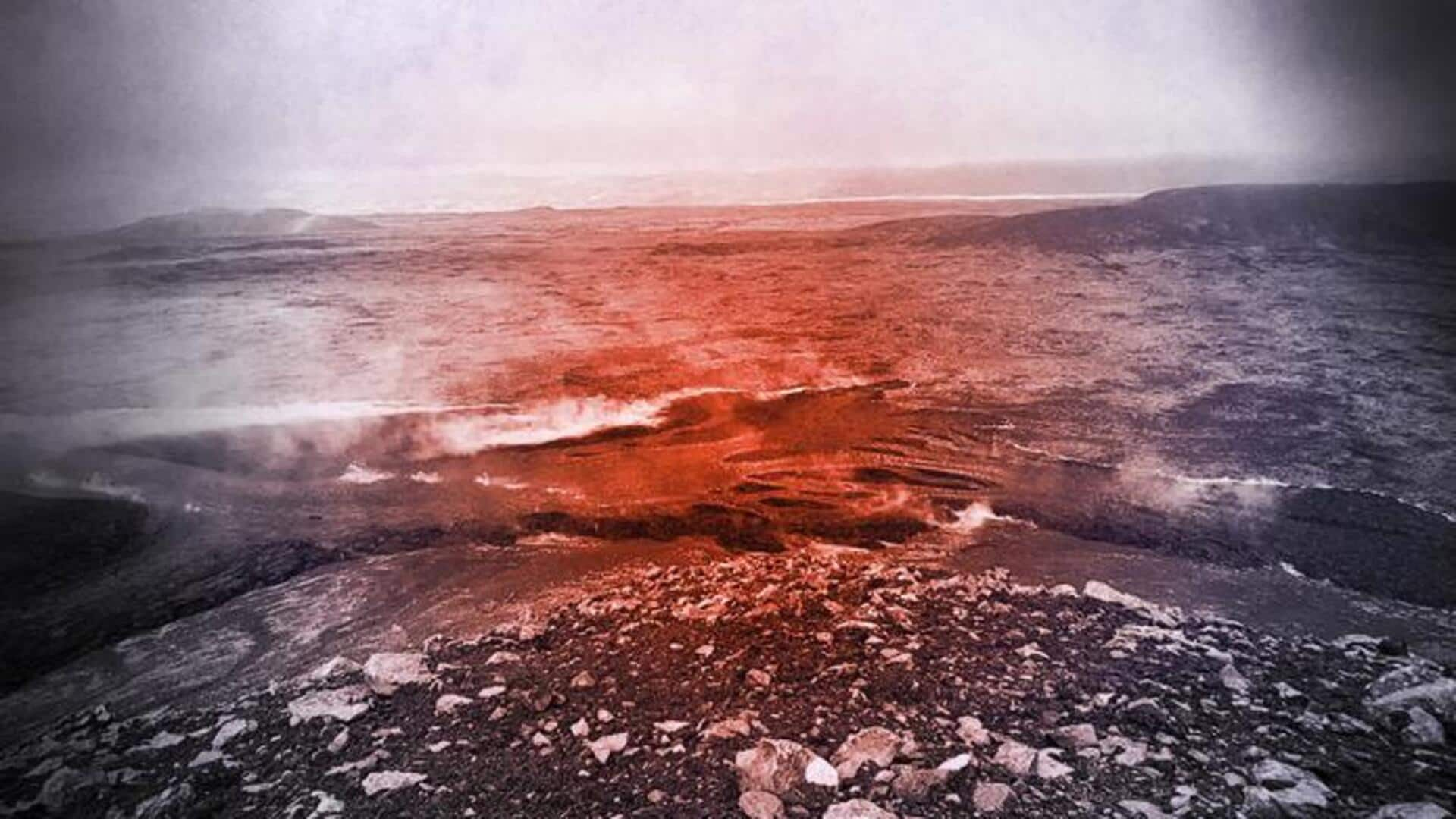
Iceland hit by 700 earthquakes, fears of volcanic eruption persist
What's the story
Iceland, known for having Europe's most active volcano systems, was rocked by 700 earthquakes on Sunday (local time) as fears of a volcanic eruption persisted. The strongest temblor, with a magnitude of 2.7, was detected near the evacuated Grindavik town on Monday morning, reported The Independent. Since late October, Icelandic meteorological authorities have been warning of a "persistent likelihood of an imminent eruption" amid increased seismic activity and underground lava flow near Reykjavik.
Context
Why does this story matter?
Iceland frequently witnesses earthquakes as it is located between the opposite-moving Eurasian and the North American tectonic plates. The country is a seismic and volcanic hotspot. While tremors are a daily occurrence in Iceland, they have increased since late October, per reports. Last month, Icelandic Meteorological Office (IMO) official Matthew Roberts predicted that a volcanic eruption was likely in the next 12 months.
Details
Grindavik residents evacuated, infrastructure damage delays return
Thousands of Grindavik residents were forced to evacuate their homes last month because of increased seismic activity in the area and potential volcanic eruption. The town became dangerous as chasms appeared on the streets. On Monday, a civil protection official confirmed the situation there was still dangerous. "I have never seen anything like it before. Usually, we will have a few minutes warning to get out, but with the weather like this, we have even less," they remarked.
What Next?
Parliament ministers visit Grindavik
On Friday, five ministers from Iceland's parliament, the Althing, visited Grindavik, where evacuated residents were allowed to collect more personal belongings. However, due to infrastructure damage, they will have to wait for months before returning home. Icelandic broadcaster RUV quoted Public Safety Director Vidir Reynisson as saying that the town's recovery would take time. Meanwhile, the IMO reported around 300 earthquakes, including a "swarm," were recorded near Grindavik on Sunday that lasted over an hour before midnight.
Iceland
State of emergency declared earlier in November
Icelandic authorities declared a state of emergency on November 10 after a series of quakes triggered a threatened volcanic eruption. The Department of Civil Protection and Emergency Management (DCPEM) said that "the intense earthquake (activity) at Sundhnjukagigar, north of Grindavik" necessitated the move. Since late October, over 20,000 tremors have been recorded in the country's southwestern parts. Notably, the Fagradalsfjall volcano on the Lilti-Hrútur mountain erupted in July.
Twitter Post
Watch: Drone footage shows cracks in Iceland
Drone footage has emerged showing cracks on the streets of Iceland's Grindavik after recent volcanic activity. Steam rises over the road through a giant split in the asphalt. According to the Office for the Protection of the Civil Population and Emergency Situations of Iceland. pic.twitter.com/1KXC6vW6dO
— 𝓐𝓵𝓫𝓮𝓻𝓽 𝓢𝓪𝓶 (@AlbertSam786067) November 27, 2023